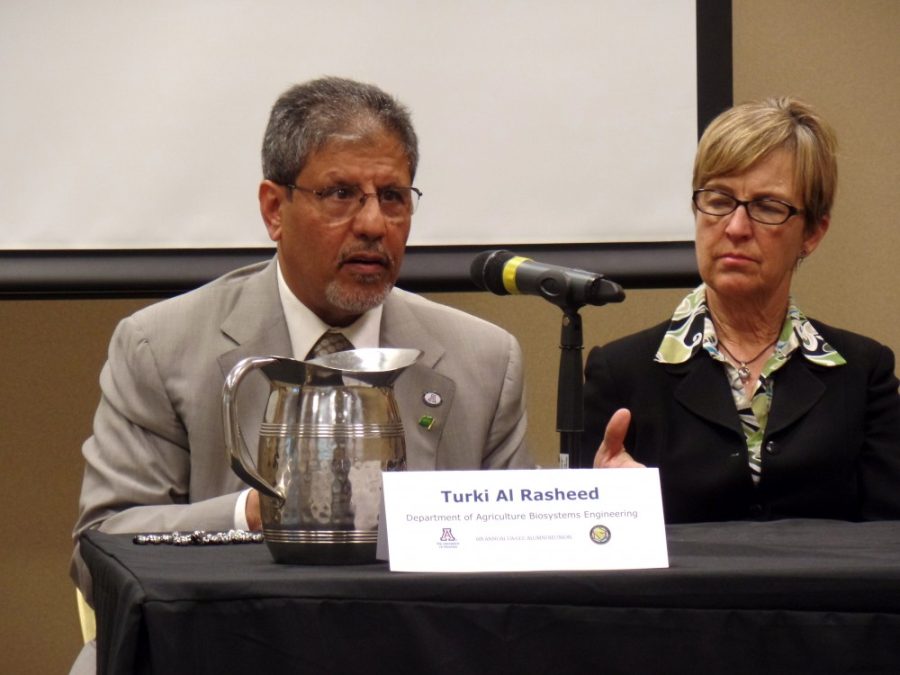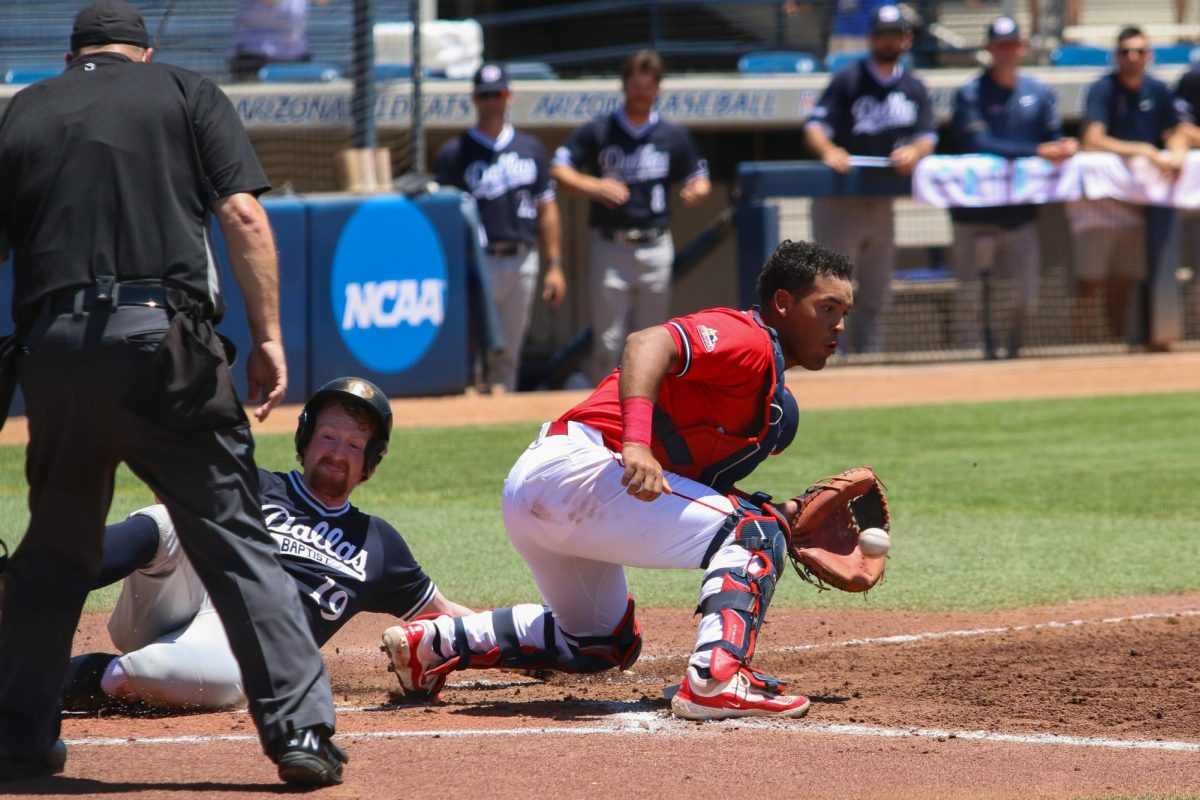Big companies, sustainable agriculture, Saudi Arabia, the UA and drones have one thing in common: each plays a role in the fight against food and political insecurity.
The UA-Gulf Cooperation Council hosted a panel on Jan. 21 titled “Climate Adaptation, Food, and Water” to talk about this complex relationship. Speakers included UA professors from agriculture and biosystems engineering, hydrology, landscape architecture and environmental science.
The UA-GCC’s innovative projects represent “a cooperation that meets the needs of GCC countries, and meets and advances the education, research and outreach functions of the UA,” said UA agricultural and biosystems engineering professor Dr. Joel Cuello in an email correspondence.
Cuello, an expert in biosystems engineering, was the moderator for the event.
Members of the GCC include Bahrain, Kuwait, Oman, Qatar, Saudi Arabia and the United Arab Emirates.
Americans are shown how different life is in the Middle East every day by U.S. news media. Yet, few Arizonans consider the similarities between the two areas. Both Arizona and the Gulf States must solve the challenge of living in arid regions and therefore, will face similar natural resource challenges in the future. Indeed, both areas have dry, hot climates and lack abundant water sources. The need for environmental innovation, along with the friendships built through collaborations such as the UA-GCC, unites turbaned Omani farmers and Yuma farmers bearing Cardinals caps.
The panel began with a general overview of environmental adaptations to the desert: gardens designed around native plants, conservative irrigation strategies, green—or “tan” for deserts—roofs and flood preparedness. However, the talk of “social agriculture” stole the spotlight.
The Food and Agricultural Organization of the United Nations defines social farming as a “practice that uses agricultural resources to provide social or educational care services for vulnerable groups of people.”
Panelist Dr. Turki Al Rasheed, a distinguished Saudi businessman and UA agricultural and biosystems engineering adjunct professor, described social farming as the intersection of economic growth, food security, minority empowerment and sustainability.
He added that this form of agriculture brings education, jobs and social inclusion to communities, citing the nation of Malawi as a success story and mentioning Saudi Arabia’s recent commitment to develop similar programs.
Rasheed claims that you do not fight wars with bombs, “you fight them with development.” And indeed, many conflicts throughout history are rooted in natural resource constraints.
Moving forward, the Department of Defense predicts that climate change will ignite additional violent conflict. Proactive investment in sustainable agriculture and water conservation today can help prevent that bleak scenario in the future.
Links between security and the environment do not end there. The final presenter, department of soil, water and environmental sciences professor Dr. Kevin Fitzsimmons, talked about harnessing the power of the private sector for sustainable agriculture and aquaculture in arid regions.
He noted that many large businesses have unfulfilled offset obligations, which can be used to fund international development projects. Companies such as U.S. defense contractor Raytheon, which invested in shrimp aquaculture technology in 2006, can continue using these mandatory offset funds to invest in sustainable agriculture and improved resource technologies—offering an alternative source of funding beyond governmental aid agencies and NGOs.
Cuello opened the panel noting that demand for animal protein in developing countries will double by 2050, and that the world as a whole will need to increase its food production by 70 percent. In arid regions, investment in low-water food sources, such as aquaculture, could provide other sources of animal protein and partially replace high-input food sources, such as cattle.
Additionally, greenhouse-hydroponics systems do not need nutrient-rich soils and can be built in the middle of cities, making them more convenient for workers.
Fitzsimmons further suggested that high-tech companies, like Raytheon, could help improve agriculture and conserve resources through donating equipment, such as low-level sensors and drones no longer used in the military.
Cuello noted that these collaborations have “a real potential for the UA to make a significant impact in the GCC region” as well as in arid and semi-arid environments in the U.S.
There are multiple ways to fight a war and multiple ways to use a drone; it is up to us to choose.
Follow Julianna Renzi on Twitter.









